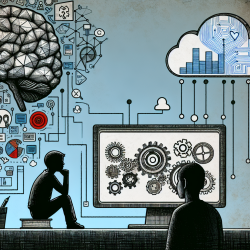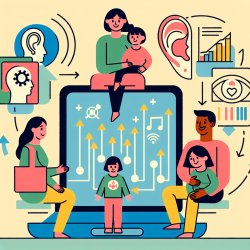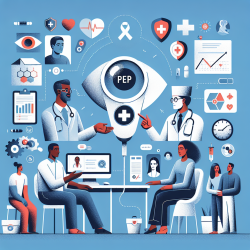In the rapidly evolving field of speech-language pathology, data-driven decisions are crucial for developing effective interventions. A recent study titled "Psychological Health and Drugs: Data-Driven Discovery of Causes, Treatments, Effects, and Abuses" provides valuable insights that can enhance our understanding of children's mental health and drug abuse. By leveraging big data and machine learning, this research offers a comprehensive view of mental health issues as discussed on Twitter.
Key Findings and Their Implications
The study utilized Twitter data to identify parameters related to mental health from three perspectives: Drugs and Treatments, Causes and Effects, and Drug Abuse. Here are some of the key findings and how they can be applied in practice:
1. Drugs and Treatments
- Diseases and Disorders: The study identified parameters such as postpartum depression and anxiety, which can affect children's development indirectly through their caregivers.
- Individual Factors: Parameters like poor concentration and fear of medicine were highlighted, emphasizing the need for tailored interventions.
- Social and Economic Factors: Issues like poverty and high healthcare costs were identified as significant contributors to mental health problems.
- Treatment Options: Non-pharmacological treatments such as walking, optimism, and good company were found to be beneficial.
- Treatment Limitations: The study also highlighted the limitations and negative effects of antidepressants.
2. Causes and Effects
- Diseases and Disorders: Parameters like attachment disorder and insomnia were identified, which can have long-term effects on children's mental health.
- Individual Factors: Factors such as fear, sadness, and loneliness were highlighted, stressing the importance of emotional support.
- Social and Economic Factors: Issues related to study pressure and work-related stress were identified as significant contributors to mental health problems.
- Treatment Options: The importance of emotional release and good friends was emphasized as effective treatment options.
3. Drug Abuse
- Drug Abuse: Parameters like bipolar disorder, university exams, and the death of loved ones were identified as significant triggers for drug abuse.
- Suicide: The study also found a strong association between drug abuse and suicide, highlighting the need for early intervention.
Practical Applications for Practitioners
Based on these findings, practitioners can take several steps to improve outcomes for children:
- Early Identification: Use data-driven tools to identify early signs of mental health issues and intervene promptly.
- Holistic Approach: Address social and economic factors alongside individual treatment plans to provide comprehensive care.
- Non-Pharmacological Treatments: Incorporate treatments like walking, emotional support, and good company into therapy plans.
- Monitor Drug Use: Be vigilant about the limitations and negative effects of antidepressants and other medications.
To read the original research paper, please follow this link: Psychological Health and Drugs: Data-Driven Discovery of Causes, Treatments, Effects, and Abuses










